Related Research Articles
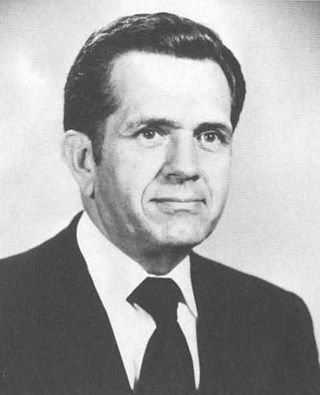
Boyd Kenneth Packer was an American religious leader and educator who served as president of the Quorum of the Twelve Apostles of the Church of Jesus Christ of Latter-day Saints from 2008 until his death. He also served as the quorum's acting president from 1994 to 2008 and was an apostle and member of the Quorum of the Twelve from 1970 until his death. He served as a general authority of the church from 1961 until his death.

David Oman McKay was an American religious leader and educator who served as the ninth president of the Church of Jesus Christ of Latter-day Saints from 1951 until his death in 1970. Ordained an apostle and member of the Quorum of the Twelve Apostles in 1906, McKay was an active general authority for nearly 64 years, longer than anyone else in LDS Church history.

Leonard James Arrington was an American author, academic and the founder of the Mormon History Association. He is known as the "Dean of Mormon History" and "the Father of Mormon History" because of his many influential contributions to the field. Since 1842, he was the first non-general authority Church Historian for the Church of Jesus Christ of Latter-day Saints, from 1972 to 1982, and was director of the Joseph Fielding Smith Institute for Church History from 1982 until 1986.
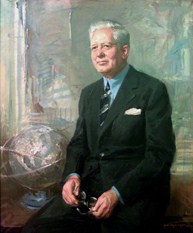
David Matthew Kennedy was an American politician and businessman. He served as the 60th U.S. Secretary of the Treasury and later as the 8th U.S. Ambassador to NATO, both under U.S. President Richard Nixon. He was Chief Executive and Chairman of the Board of Continental Illinois during the 1950s and 1960s.
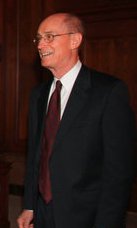
Henry Bennion Eyring is an American educational administrator, author, and religious leader. Eyring has been the second counselor to Russell M. Nelson in the First Presidency of the Church of Jesus Christ of Latter-day Saints since January 14, 2018. Previously, Eyring was the first counselor to Thomas S. Monson in the First Presidency from 2008 until Monson's death on January 2, 2018. Eyring was the second counselor to Gordon B. Hinckley in the First Presidency from October 6, 2007, until Hinckley's death on January 27, 2008.
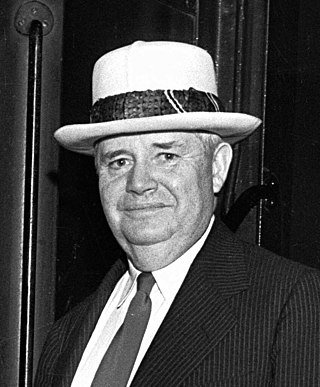
Joshua Reuben Clark Jr. was an American attorney, civil servant, and a prominent leader in the Church of Jesus Christ of Latter-day Saints. Born in Grantsville, Utah Territory, Clark was a prominent attorney in the Department of State, and Undersecretary of State for U.S. President Calvin Coolidge. In 1930, Clark was appointed United States Ambassador to Mexico.

The Church Educational System (CES) of the Church of Jesus Christ of Latter-day Saints consists of several institutions that provide religious and secular education for both Latter-day Saint and non–Latter-day Saint elementary, secondary, and post-secondary students and adult learners. Approximately 700,000 individuals were enrolled in CES programs in 143 countries in 2011. CES courses of study are separate and distinct from religious instruction provided through wards. Clark G. Gilbert, a general authority seventy, has been the CES commissioner since August 1, 2021.

Ernest Leroy Wilkinson was an American academic administrator, lawyer, and prominent figure in the Church of Jesus Christ of Latter-day Saints. He was president of Brigham Young University (BYU) from 1951 to 1971, simultaneously overseeing the entire LDS Church Educational System (CES). He is credited with the expansion of BYU. Under his presidency, the student body increased six times to over 25,000 students due to the university's physical growth and his aggressive recruiting policies; the number of colleges at the university increased from five to thirteen, and the number of faculty members increased four-fold. Wilkinson focused on recruiting more faculty and convincing current faculty to receive education outside the university. As a result, the number of teachers with doctorate degrees increased from 50 to 500. Associate and doctoral programs were created for BYU.
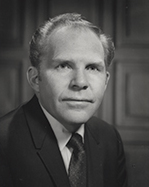
Koln Gunn McKay was an American politician who represented the state of Utah. He served from January 3, 1971 to January 3, 1981, beginning in the ninety-second Congress and in four succeeding congresses.
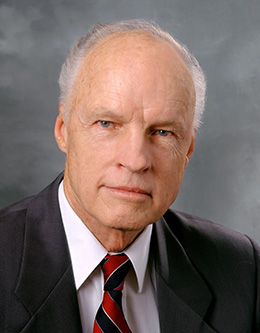
Truman Grant Madsen was an American professor of religion and philosophy at Brigham Young University (BYU) and director of the Brigham Young University Jerusalem Center for Near Eastern Studies. He was a prolific author, a recognized authority on Joseph Smith, and a popular lecturer among Latter-day Saints. At one point, Madsen was an instructor at the LDS Institute of Religion in Berkeley, California.
Merrill Joseph Bateman is an American religious leader who was the 11th president of Brigham Young University (BYU) from 1996 to 2003. He is an emeritus general authority of the Church of Jesus Christ of Latter-day Saints and was the LDS Church's 12th presiding bishop in 1994 and 1995. Bateman was the Sunday School General President of the LDS Church from 2003 to 2004, a member of the Church's Presidency of the Seventy from 2003 to 2007, and the president of the Provo Utah Temple from 2007 to 2010.

Neil Linden Andersen is an American religious leader and former business executive who serves as a member of the Quorum of the Twelve Apostles of the Church of Jesus Christ of Latter-day Saints. He was sustained by church membership as an apostle on April 4, 2009, during the church's General Conference. At the time of his call to the Twelve, Andersen had been serving as an LDS general authority since 1993, including service in the Presidency of the Seventy from 2005 to 2009. Currently, he is the ninth apostle in order of seniority in the church.
Steven Charles Wheelwright was the 9th president of Brigham Young University–Hawaii (BYU-Hawaii) from 2007 to 2015. Prior to that appointment, he was a professor and senior associate dean at Harvard Business School.

Royden Glade Derrick was an American industrialist and general authority of the Church of Jesus Christ of Latter-day Saints from 1976 until his death.
Reed Amussen Benson was an American academic and professor of religion at Brigham Young University who was the national director of public relations for the John Birch Society. During his career, Benson was noted for his political conservatism and advocacy of homeschooling.

Harvey L. Taylor was an administrator over all schools other than Brigham Young University (BYU) within the Church Educational System of the Church of Jesus Christ of Latter-day Saints from 1964 until 1970. He was vice president of Brigham Young University (BYU) from 1957 until 1964, when he became acting Chancellor of the Unified School System.

George S. Ballif was an early LDS Church Missionary in France. Ballif was born in Logan, Utah, in 1894 before his family moved to Rexburg, Idaho, in 1900. Because of World War I, Ballif was relocated from France to Switzerland and England. After returning home from his mission in 1916, Ballif enrolled in Ricks College. A year later, Ballif was drafted and sent back to France as a soldier. Ballif attended Brigham Young University (BYU) after his return in 1919. Here, he was elected student body president. Ballif graduated from BYU in 1921 before going to Harvard Law School. He later transferred to the UC Berkeley School of Law where he graduated in 1924. He served as city, county, and district attorney in Utah. He was the city judge of Provo, Utah, as well as the president of the Utah County and Utah State Bar Associations. In his personal life, he married Algie Eggersten in 1920. They had four children. Ballif served on many committees and in many clubs throughout his life. He died in Salt Lake City, Utah.

Stephen L Richards was a prominent leader in the Church of Jesus Christ of Latter-day Saints. He was a member of the Quorum of the Twelve Apostles of the LDS Church and the First Counselor in the First Presidency.
Reid Larkin Neilson is the assistant academic vice president (AAVP) for religious scholarly publications at Brigham Young University (BYU). He was the Assistant Church Historian and Recorder for the Church of Jesus Christ of Latter-day Saints from 2015 to 2019, and the managing director of the church's history department from 2010 to 2019.
References
- John A. Forster, "World of experience taught him love", Church News , 1977-06-18.
- Charlene R. Winters, "From Ethics to Emeriti", BYU Magazine, Summer 2001.